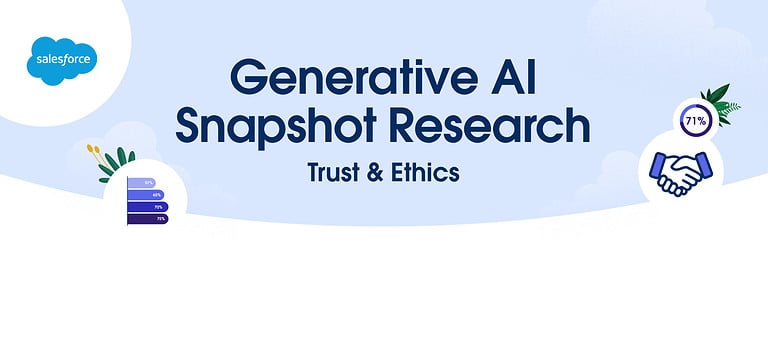Salesforce research indicates that employees see generative AI as transformative. They estimate that they could save an average of five hours per work week using it, so it’s not too surprising that adoption of the technology is rocketing. Unfortunately, properly handling sensitive information is not yet as commonly understood as it should be.
Salesforce surveyed over 4,000 full-time sales, service, marketing and commerce employees. It involved online respondents in the U.S., U.K. and Australia.
Time gained, security lost
No one can accuse the group of respondents of being naive, at least. 73 per cent of workers believe that generative AI poses new security risks. Examples already exist: just think of the leaking of trade secrets to ChatGPT by Samsung employees. It resulted in the chatbot being banned by the Korean giant. AI models work with datasets that often contain disputable content anyway, resulting in allegations of privacy and copyright violations.
Still, the benefit also weighs heavily: those surveyed believe one will save an average of five hours per week by deploying generative AI. Salesforce makes the point that this amounts to a month a year in time savings. Therefore, not surprisingly, 61 per cent plan to buy into the technology. In it, one can count on numerous applications, each of which, in turn, focuses on a particular work task or employment sector. Consider automating customer assistance, listing sales statistics or even gathering legal documents for a case.
All of this makes it problematic that 60 per cent of employees do not know how to make sure they have reliable data sources on them or how to keep sensitive information from leaking out.
Inaccurate, biased
Opinions are clearly divided among Salesforce respondents: 54 per cent fear AI output is inaccurate, while 59 per cent fear bias in the models involved. Trust is crucial, so the conviction is still needed as far as employees are concerned.
The same is not true of leadership in a company. More than four in five executives think they can adequately secure data in generative AI. This is a striking difference, perhaps reflecting how potentially promising the technology is and how unruly reality proves to be.
Also read: Marketing industry sees generative AI as game changer
